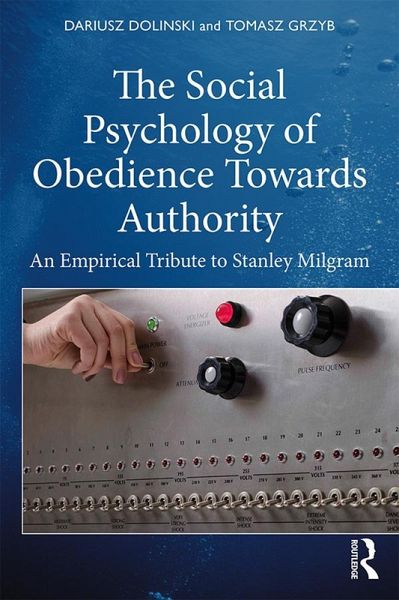
The Social Psychology of Obedience Towards Authority (eBook, ePUB)
An Empirical Tribute to Stanley Milgram
Versandkostenfrei!
Sofort per Download lieferbar
39,95 €
inkl. MwSt.
Weitere Ausgaben:

PAYBACK Punkte
20 °P sammeln!
This rich volume explores the complex problem of obedience and conformity, re-examining Stanley Milgram's famous electric shock study, and presenting the findings of the most extensive empirical study on obedience toward authority since Milgram's era.Dolinski and Grzyb refer to their own series of studies testing various hypotheses from Milgram's and others' research, examining underlying obedience mechanisms as well as factors modifying the degree of obedience displayed by individuals in different situations. They offer their theoretical model explaining subjects' obedience in Milgram's parad...
This rich volume explores the complex problem of obedience and conformity, re-examining Stanley Milgram's famous electric shock study, and presenting the findings of the most extensive empirical study on obedience toward authority since Milgram's era.
Dolinski and Grzyb refer to their own series of studies testing various hypotheses from Milgram's and others' research, examining underlying obedience mechanisms as well as factors modifying the degree of obedience displayed by individuals in different situations. They offer their theoretical model explaining subjects' obedience in Milgram's paradigm and describe numerous examples of the destructive effect of thoughtless obedience both in our daily lives as well as in crucial historical events, stressing the need for critical thinking when issued with a command.
Concluding with reflections on how to prevent the danger of destructive obedience to authority, this insightful volume will be fascinating reading for students and academics in social psychology, as well as those in fields concerned with complex social problems.
Dolinski and Grzyb refer to their own series of studies testing various hypotheses from Milgram's and others' research, examining underlying obedience mechanisms as well as factors modifying the degree of obedience displayed by individuals in different situations. They offer their theoretical model explaining subjects' obedience in Milgram's paradigm and describe numerous examples of the destructive effect of thoughtless obedience both in our daily lives as well as in crucial historical events, stressing the need for critical thinking when issued with a command.
Concluding with reflections on how to prevent the danger of destructive obedience to authority, this insightful volume will be fascinating reading for students and academics in social psychology, as well as those in fields concerned with complex social problems.
Dieser Download kann aus rechtlichen Gründen nur mit Rechnungsadresse in A, B, BG, CY, CZ, D, DK, EW, E, FIN, F, GR, HR, H, IRL, I, LT, L, LR, M, NL, PL, P, R, S, SLO, SK ausgeliefert werden.













